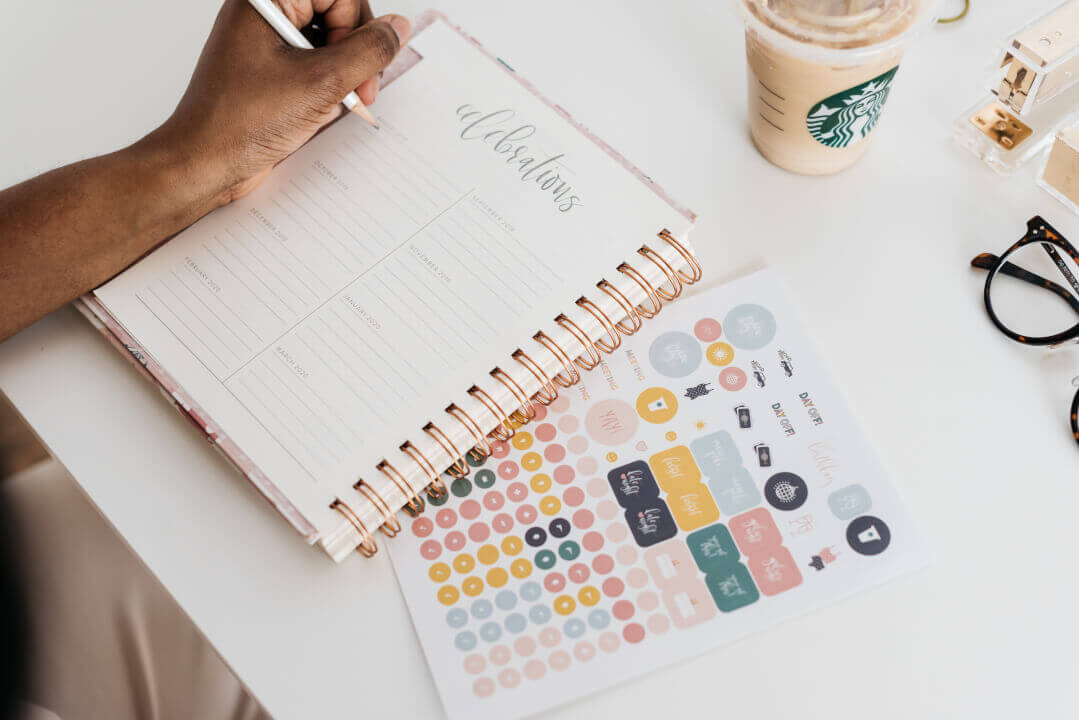Are you tired of studying feeling like a chore? Do you struggle with motivation and finding the energy to approach your studies with enthusiasm and excitement? If so, you’re not alone. Many students find studying to be a daunting task, but it doesn’t have to be that way. In this article, we’ll share tips on how to romanticize studying and make it fun, so you can approach your studies with a positive attitude and achieve academic success.
Create a Study Space That Inspires You
One of the most important factors in making studying enjoyable is having a study space that inspires you. Your study space should be a place where you feel comfortable and motivated to learn. Here are some tips for creating an inspiring study space:
- Personalize your space: Surround yourself with items that hold personal meaning or inspire you. It could be a vision board with images representing your goals, a framed quote that motivates you, or artwork that resonates with your interests. By incorporating elements that reflect your personality, you’ll feel a stronger connection to your study space and be more motivated to spend time there.
- Organize and declutter: A cluttered and disorganized study space can create unnecessary stress and distractions. Take the time to declutter your desk, shelves, and drawers. Use storage containers, file organizers, or desk accessories to keep your study materials neatly arranged and easily accessible. An organized environment will allow you to focus on your studies without the visual and mental clutter.
- Utilize natural light and greenery: Natural light has a positive impact on your mood, energy levels, and overall well-being. Position your study area near a window to maximize the amount of natural light you receive. Additionally, consider adding indoor plants or fresh flowers to your study space. Plants not only enhance the aesthetic appeal but also help purify the air and create a calming atmosphere conducive to concentration and creativity.
Make Learning a Game
Gamifying learning is a great way to make studying more enjoyable. By turning your studies into a game, you can increase motivation and engagement. Here are some examples of gamification techniques:
- Set goals and rewards: Break down your study tasks into smaller, manageable goals and set specific deadlines for each one. For example, if you’re studying for a history exam, you can set a goal to memorize a certain number of key dates or events within a specific timeframe. Once you achieve a goal, reward yourself with something you enjoy, such as a short break to watch a favorite TV show, treat yourself to a small snack, or spend time pursuing a hobby. This system of rewards and milestones will make your progress tangible and provide a sense of accomplishment along the way.
- Challenge yourself: Inject a sense of competition into your study routine. For instance, set a timer for a specific study session and challenge yourself to complete a task or cover a certain amount of material before the timer runs out. Keep track of your personal bests and aim to improve upon them each time. If you have study buddies, you can engage in friendly competitions to see who can solve practice problems or complete assignments more efficiently. This friendly rivalry can boost motivation and make studying more exciting.
- Use interactive learning tools: Explore the wide range of educational apps, online platforms, and interactive study resources available. Many apps and websites offer gamified learning experiences, such as quizzes, puzzles, or interactive exercises. These tools can make studying more engaging by incorporating elements of competition, rewards, and immediate feedback. Whether it’s a language learning app that rewards you with virtual coins for completing lessons or a science website with interactive simulations, finding the right interactive tools can transform your study sessions into enjoyable learning adventures.
Find Your Learning Style
Everyone learns differently, and it’s important to identify your learning style so you can study in a way that works best for you. There are three main learning styles: visual, auditory, and kinesthetic. Here are some tips for studying according to your learning style:
- Visual learners: Visual learners benefit from using visual aids to enhance their understanding and retention of information. Consider using mind maps, flowcharts, or diagrams to organize complex concepts. Color-code your notes, use highlighters to emphasize key points, and create visual summaries of important topics. Utilize online resources or software that allow you to create interactive visuals, such as concept maps or digital flashcards, to make studying visually stimulating and memorable.
- Auditory learners: Auditory learners absorb information best through hearing and speaking. Make use of recorded lectures or educational podcasts that cover your study topics. Listen to them during your study sessions or while commuting. Engage in discussions with peers or form study groups where you can explain concepts aloud to solidify your understanding. Additionally, you can experiment with creating your own audio recordings where you explain topics in your own words. Listening to your own voice can reinforce the information and help you retain it better.
- Kinesthetic learners: Kinesthetic learners learn best through hands-on activities and movement. Incorporate physical elements into your study routine. Take short breaks to engage in physical exercise or movement, such as stretching, walking, or doing jumping jacks. For subjects that involve memorization, consider using manipulatives like flashcards, models, or even building structures with blocks to reinforce your learning. The physical interaction with study materials will help you retain information more effectively.
Connect Learning to Your Interests
Connecting learning to your personal interests is a great way to make studying more enjoyable. When you’re interested in a topic, you’re more likely to be motivated to learn about it. Here are some examples of how to connect learning to personal interests:
- Relate concepts to real-life examples: To make studying more enjoyable, find connections between the subject matter and real-life situations or examples. For example, if you’re studying geometry, visualize how different shapes are present in everyday objects or architectural structures around you. If you’re learning about historical events, imagine yourself living during that time period and consider how it would have affected your life. Making these connections between theory and reality can make studying more relatable and engaging.
- Choose relevant study materials: Look for study materials that align with your personal interests and hobbies. If you have a passion for photography, explore books or online resources that discuss the science and art behind capturing great photos. If you’re into sports, find articles or videos that explore the physics behind different athletic movements. By studying topics that genuinely fascinate you, you’ll be more motivated to delve deeper into the subject matter and enjoy the learning process.
- Create projects or presentations: Instead of merely memorizing facts, actively apply your knowledge by working on projects or presentations that allow you to showcase what you’ve learned. For instance, if you’re studying biology, create a model or a presentation about a specific biological process or organism. Incorporate your interests into the project, such as using creative artwork or integrating elements from your favorite hobby. By infusing your personal touch, you’ll feel a deeper sense of engagement and satisfaction with your studies.
Conclusion
By implementing these strategies, you can transform studying from a monotonous chore into an enjoyable and fun experience. Personalizing your study space, gamifying your learning process, adapting to your preferred learning style, and connecting your studies to your interests will create a positive and engaging learning environment. Embrace these techniques, and watch as your motivation, productivity, and overall enjoyment of studying soar. Remember, learning is an adventure waiting to be discovered, and by romanticizing the process, you unlock the secret to truly enjoyable learning.




